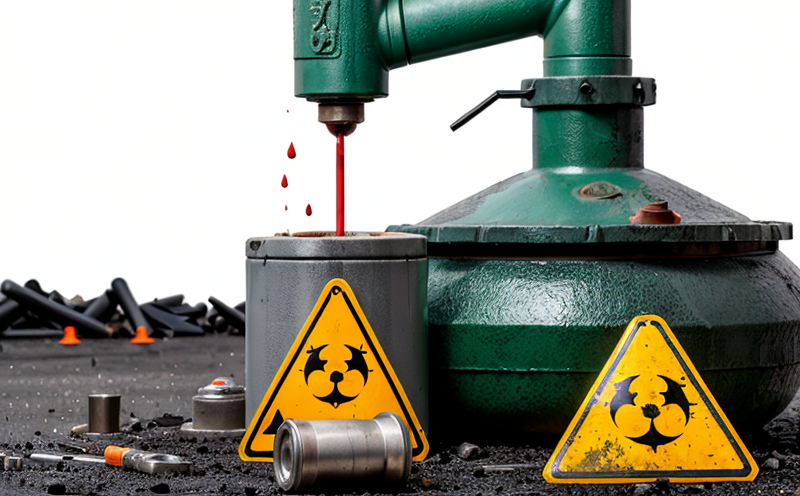Organophosphate Pesticide Hazardous Testing in Crops
The testing of organophosphate pesticides in crops is a critical aspect of ensuring food safety and environmental health. Organophosphates are widely used due to their effectiveness against pests, but they can also pose significant risks if not managed properly. This service focuses on the rigorous analysis of these pesticides in agricultural produce to ensure compliance with international standards and regulatory requirements.
Our laboratory employs state-of-the-art analytical techniques and adheres strictly to protocols that are internationally recognized. The testing process begins with sample collection, which involves careful selection from various parts of the crop—leaves, fruits, roots, etc., depending on the organophosphate's typical uptake location in the plant. Once collected, samples undergo thorough preparation steps including cleaning, extraction, and purification.
The chosen analytical methods for detecting organophosphates include gas chromatography with mass spectrometry (GC-MS), liquid chromatography coupled with tandem mass spectrometry (LC-MS/MS), and high-performance liquid chromatography (HPLC). These techniques provide precise quantification, ensuring that even trace amounts of pesticides are accurately detected. Our team ensures all results are reported against relevant standards such as ISO 17025, ensuring reliability and accuracy.
Understanding the environmental impact is crucial for this service. Organophosphate residues can accumulate in soil over time, affecting non-target organisms like beneficial insects and wildlife. Proper testing helps identify these risks early on, allowing for better management practices that minimize harm while maintaining crop yields.
Why It Matters
The importance of organophosphate pesticide hazardous testing in crops cannot be overstated given the dual concerns of food safety and environmental protection. From a human health perspective, exposure to high levels of these pesticides can lead to serious neurological damage and other adverse effects, particularly among children and pregnant women who may consume contaminated produce regularly.
On an ecological level, organophosphates can disrupt ecosystems by killing beneficial insects such as bees, which play vital roles in pollination. This disruption not only affects agricultural productivity but also has broader implications for biodiversity conservation efforts worldwide. By providing reliable data through thorough testing, our laboratory contributes directly to mitigating these risks.
Regulatory bodies like the World Health Organization (WHO) and Food and Agriculture Organization of the United Nations (FAO) have established guidelines aimed at reducing human exposure while preserving agricultural productivity. Compliance with these regulations is essential for maintaining consumer confidence and protecting public health.
Scope and Methodology
| Test Parameters | Method Used |
|---|---|
| Pesticide Identification | Gas Chromatography with Mass Spectrometry (GC-MS) |
| Detection Limits | 0.1 mg/kg for most organophosphates |
| Sample Preparation | Cleanup, extraction using methanol/water mixtures |
The testing process follows a structured approach aimed at achieving accurate results consistently. Samples are first prepared by extracting the suspected organophosphate residues from the crop matrix using appropriate solvents followed by cleanup procedures to remove interfering substances.
Once purified, the samples are analyzed via GC-MS or LC-MS/MS depending on the specific pesticide being tested. These methods offer high sensitivity and selectivity allowing even minute traces of pesticides to be detected accurately. The final step involves comparing the observed chromatographic peaks against reference standards provided by manufacturers.
Environmental and Sustainability Contributions
- Promotes sustainable agriculture practices by identifying potential sources of contamination early in the production cycle.
- Reduces unnecessary pesticide use through targeted application based on test results, thus minimizing environmental impact.
- Aids in developing safer alternatives for pest control without compromising yield or quality.
- Supports regulatory compliance ensuring adherence to international standards set forth by organizations such as WHO and FAO.
- Contributes to long-term food security by fostering trust among consumers regarding the safety of agricultural products.
By offering this specialized testing service, we play an integral role in promoting responsible stewardship of natural resources within the agricultural sector. Our commitment lies not only in delivering precise analytical data but also in contributing positively towards global sustainability goals.





